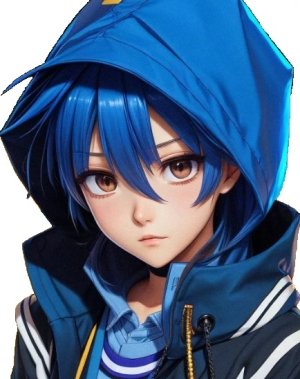This review may contain spoilers
At first I thought this would be one of those shows tackling disability as if it was a plot device to keep a relationship going, but while it may have started as how Yukiko and Morio know of each other, it wasn’t a show to gratify the condition.
Whereas other dramas might fail in undertaking the topic of blindness, this one succeeds. This drama does not give you a chance to feel pity for Yukiko, because you see her determination to overcome her inability to see like others. She uses the resources available to her, and where it is lacking, she creates and looks for opportunities to improve.
Instead of feeling sad for Yukiko, I ended up rooting for her like how Morio did in the show. His belief in her strength and tenacity was adorable. And while I appreciate how he supports his girlfriend, it only highlighted the time he has on his hands, that I forget he had a part-time job only after he met Yukiko. Nevertheless, Morio’s redemption arc from delinquent to dependable is to be noted.
Speaking of redemption arcs, I have a beef with the second leads. I cannot fathom how Shishio, who used to fight Morio all the time, ends up being actually in love with him? Logic not computing, but also makes sense. Is this like: boys who bully girls, secretly have a crush on the girl? He gives Morio a job at his grandmother’s store, helps him be his wingman, and later becomes his potential brother-in-law even though he’s gay? What in the fantasy world is this? Meanwhile Izumi, who is Yukiko’s sister, has poor taste in men. She’s also overprotective of her sister, and yet she seems to be the weaker of the two. And because everyone needs a partner, they just lump these two incompatible characters with each other.
Aside from its flaws, this show is a decent watch, especially when they included the educational snippets from Hamada Yutaro, a blind comedian whose jokes flew over my head because I don’t have cued-canned laughter.
Whereas other dramas might fail in undertaking the topic of blindness, this one succeeds. This drama does not give you a chance to feel pity for Yukiko, because you see her determination to overcome her inability to see like others. She uses the resources available to her, and where it is lacking, she creates and looks for opportunities to improve.
Instead of feeling sad for Yukiko, I ended up rooting for her like how Morio did in the show. His belief in her strength and tenacity was adorable. And while I appreciate how he supports his girlfriend, it only highlighted the time he has on his hands, that I forget he had a part-time job only after he met Yukiko. Nevertheless, Morio’s redemption arc from delinquent to dependable is to be noted.
Speaking of redemption arcs, I have a beef with the second leads. I cannot fathom how Shishio, who used to fight Morio all the time, ends up being actually in love with him? Logic not computing, but also makes sense. Is this like: boys who bully girls, secretly have a crush on the girl? He gives Morio a job at his grandmother’s store, helps him be his wingman, and later becomes his potential brother-in-law even though he’s gay? What in the fantasy world is this? Meanwhile Izumi, who is Yukiko’s sister, has poor taste in men. She’s also overprotective of her sister, and yet she seems to be the weaker of the two. And because everyone needs a partner, they just lump these two incompatible characters with each other.
Aside from its flaws, this show is a decent watch, especially when they included the educational snippets from Hamada Yutaro, a blind comedian whose jokes flew over my head because I don’t have cued-canned laughter.
Was this review helpful to you?


 1
1





















